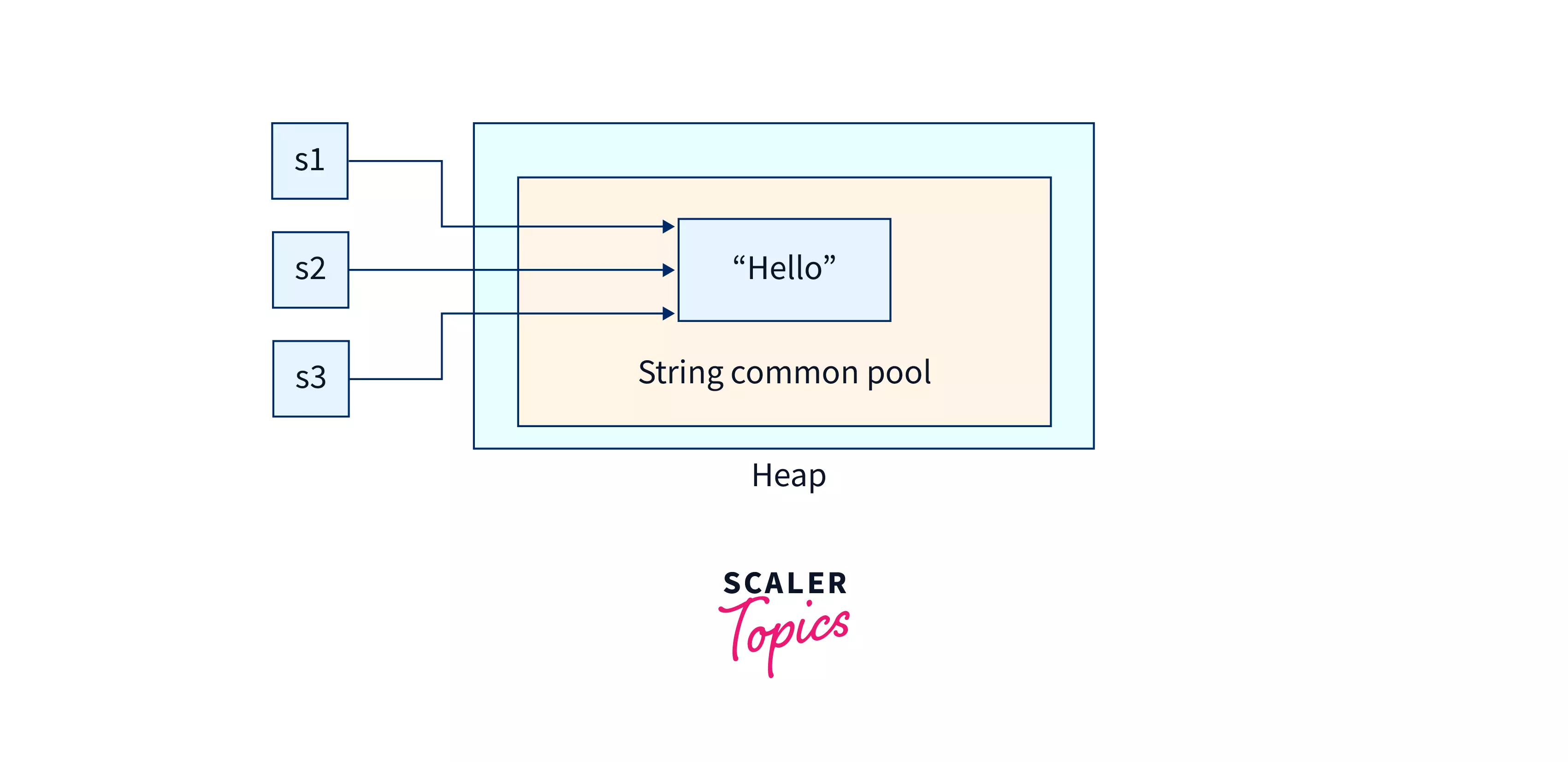Why Are Strings Immutable in Java? Ideal Practices and Usage Situations
Wiki Article
What Is Immutable Strings and How It Functions
In the realm of programs, understanding the principle of immutable strings is extremely important for producing protected and durable applications. Immutable strings refer to strings that can not be altered after they are produced, making certain data honesty and predictability within the code. This basic concept plays a critical role in numerous programs languages and provides a distinct approach to managing information. By checking out the details of just how unalterable strings work, one can reveal a globe of benefits and possibilities that can raise the high quality and efficiency of software program development.The Essentials of Immutable Strings
Immutable strings, as an essential idea in shows, are personality series that can not be transformed once they are developed. This suggests that as soon as a string is assigned a worth, that value can not be changed. In languages like Python and Java, strings are immutable items, causing numerous ramifications in terms of memory management and information stability.Among the crucial advantages of unalterable strings is that they provide a complacency in data manipulation. Since the content of an immutable string can not be customized, it ensures that the original data continues to be intact, reducing the threat of unintentional adjustments during program implementation (Why are strings immutable in Java?). This building also simplifies debugging procedures, as developers can rely on that when a string is defined, its value will certainly not be accidentally altered
Moreover, immutable strings assist in reliable memory usage. When a brand-new string is created based upon an existing one, instead of changing the original string, the brand-new value is kept independently. This strategy boosts performance by reducing memory fragmentation and simplifying memory allotment processes. Overall, understanding the fundamentals of unalterable strings is important for grasping shows principles and optimizing code performance.
Benefits of Immutable Strings
Building upon the protection and efficiency advantages of unalterable strings, their benefits expand to boosting code reliability and streamlining simultaneous shows jobs. By being unalterable, strings can not be modified after production, which eliminates the threat of unintentional changes in the information they save. This integral immutability guarantees that as soon as a string is created, its value continues to be constant throughout the program's implementation, decreasing the chances of bugs triggered by unexpected modifications.Furthermore, unalterable strings add to code reliability by making it much easier to reason about the state of a program. Since strings can not be transformed, designers can trust that a string will constantly hold the very same value, simplifying debugging and upkeep initiatives. This predictability leads to extra stable and reliable codebases.

Application in Programming Languages
Within various shows languages, the unification of unalterable strings is a fundamental element that impacts exactly how data is handled and controlled within code frameworks. The implementation of immutable strings varies throughout different programs languages, with each language offering its own mechanisms to support this idea.

In comparison, languages like C and C++ do not have integrated support Get the facts for unalterable strings. Developers in these languages need to by hand apply immutability by implementing guidelines within their code to stop direct alterations to string objects.
Best Practices for Functioning With Unalterable Strings
When taking care of unalterable strings in programs languages like Java and Python, adhering to best techniques makes sure reliable and protected data manipulation. One of the key best practices is to make use of StringBuilder or StringBuffer instead of straight manipulating strings, specifically when managing substantial concatenation procedures. These courses give mutable options for string manipulation, helping to stay clear of unnecessary memory appropriations and boosting performance.Another finest practice is to utilize string interpolation or format operates supplied by the language as opposed to manual concatenation. This not just enhances readability however additionally help in stopping typical pitfalls such as unintentional string adjustments. Additionally, when collaborating with delicate information such as passwords or API secrets, it is essential to stay clear of storing them as plain message in unalterable strings. Utilizing safe storage space systems like char varieties or specialized collections check that for managing delicate information assists minimize security dangers linked with immutable strings.
Real-world Applications and Examples
Exploring sensible applications of immutable strings in different industries discloses their considerable impact on data integrity and system integrity. In the health care industry, immutable strings play a crucial duty in guaranteeing the security and discretion of individual information. By stopping unauthorized alterations to delicate info such as medical documents and prescriptions, immutable strings assist keep compliance with rigorous privacy policies like HIPAA.Monetary establishments likewise benefit from the unalterable nature of strings to improve the protection of client data and transaction records. Immutable strings aid avoid fraud and unapproved changes to monetary details, giving a robust defense versus cyber hazards and guaranteeing the depend on and self-confidence of clients.

Final Thought
Ideal practices for working with immutable strings consist of staying clear of straight adjustments and using approaches that return brand-new string things. Real-world applications of unalterable strings include information encryption, caching, and string control jobs.Unalterable strings refer to strings that can not be modified after they are you can look here created, ensuring data honesty and predictability within the code. When a new string is developed based on an existing one, rather than changing the original string, the new value is stored independently.In languages like Java and Python, strings are unalterable by default, meaning that as soon as a string object is produced, its worth can not be altered - Why are strings immutable in Java?. Ideal practices for working with unalterable strings consist of staying clear of direct modifications and utilizing methods that return brand-new string items. Real-world applications of immutable strings include data file encryption, caching, and string control jobs
Report this wiki page